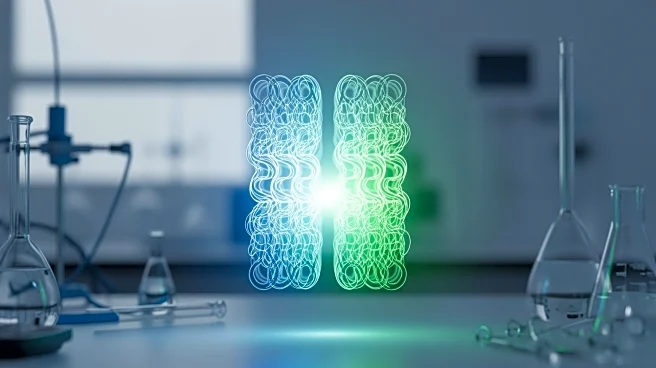What's Happening?
Researchers at Rensselaer Polytechnic Institute (RPI) have developed a regenerated cellulose membrane that outperforms traditional chromatography columns in purifying mRNA therapies. This new technique, led by Georges Belfort, PhD, and his team, offers
faster and more efficient removal of impurities, potentially reducing the costs and time associated with mRNA production. The membrane uses peptide ligands to selectively bind and purify mRNA molecules, which are larger and more challenging to process than typical monoclonal antibodies. The team is seeking industry collaborators to help commercialize this innovative purification process.
Why It's Important?
The development of a more efficient purification method for mRNA therapies is crucial as these treatments become increasingly important in modern medicine, particularly in vaccine production. The ability to purify mRNA more quickly and cost-effectively could accelerate the development and distribution of mRNA-based treatments, enhancing the pharmaceutical industry's capacity to respond to health crises like pandemics. This advancement may also lead to broader applications of mRNA technology in treating various diseases, potentially revolutionizing therapeutic approaches and improving patient outcomes.
What's Next?
The research team at RPI is looking to attract industry partners to refine and commercialize their purification process. This collaboration could lead to the widespread adoption of the regenerated cellulose membrane in mRNA therapy production, setting new standards for efficiency and cost-effectiveness in the bioprocessing industry. As the demand for mRNA therapies continues to grow, this innovation could play a pivotal role in meeting global healthcare needs and advancing biotechnological research.

















